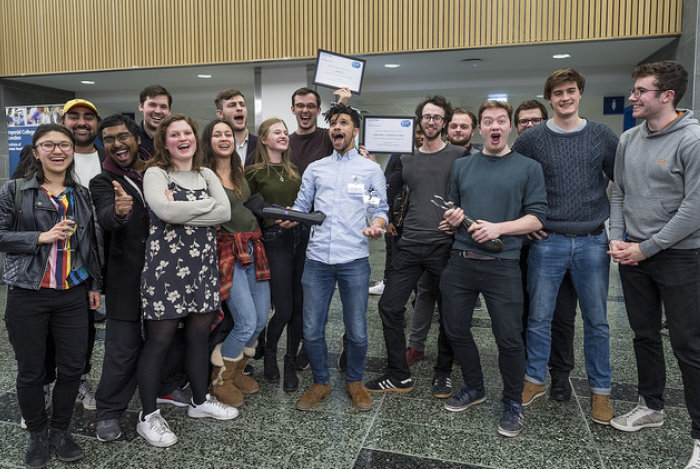Meet our Student Challenges Competition finalists!

Introducing the students who think their novel ideas could help transform global health for the better.
It’s that time of year again: the Institute of Global Health Innovation’s Student Challenges Competition is back in full force.
We’re looking for budding innovators, inventors and entrepreneurs who want to make a difference to global health. And we’re offering £5,000 to the winners so that they can bring their idea to life.
But to be in with a chance, first they have to come face to face with our dragons. Don’t worry, we’re not asking them to prove their determination by battling reptiles for the prize. Instead, they’ll be pitching their projects at our exhilarating Dragon’s Den-style showcase event: don’t miss this, register for your free ticket here.
So who is in the running to bring home the cash and take their project to the next level? Meet our five finalists:
Capta
Laura Braun and Kai Riemer are the masterminds behind Capta, a project that aims to tackle parasitic worms. These infections represent a major burden on global health, particularly in areas with poor sanitation and healthcare.
They’re developing a smart, handheld microscope that can be attached to mobile devices to give a rapid, low-cost diagnosis and analysis of stool or urine samples. Their hope is that this could help people get the treatment they need, thereby improving populations’ health while simultaneously facilitating disease education.
Find out more:
Clean Water and Phosphorous Recycling
Petter Uvdal’s project hits two birds with one stone. He wants to improve food security while also providing clean water. To do this, he’s developing a process that simultaneously produces phosphorous while purifying water.
Phosphorous is an important component of fertiliser but it’s not in finite supply. So Petter’s idea is to process excess organic material from plants into logs that can be burned to produce electricity and distil water, and then use the remaining ashes as a source of phosphorous.
Find out more:
Vie+
Vaccines save lives. And this duo, Ebrahem Sherwi and Martynas Kaminskas, want to help more people access them.
They’re developing an automated, vaccine-delivery device whereby users will input their information and the machine will administer the required vaccination. By reducing the need for trained staff and associated costs, their hope is to increase vaccine coverage and therefore reduce disease rates.
Find out more:
VUI Diagnostics
Simon Rabinowicz and Uddhav Vaghela have a clear vision for the future: they want to contribute towards better eye health by developing a low-cost tool for retinal imaging.
Retinal screening is essential for the diagnosis and monitoring of many eye diseases, but the current technique has major limitations including subjective analysis. This project aims to change that by developing a combined imaging and analysis device that can offer rapid, reliable and affordable retinal screening, enabling earlier diagnosis and treatment of eye diseases.
Find out more:
Smart Pressure Mapping Sock
Nana B Owusu-Nyantekyi is working on a smart sock that could help detect early warning signs in people at high-risk of foot complications, such as diabetics.
Many people with diabetes will develop a complication called peripheral neuropathy, where nerve damage can lead to foot ulcers and sometimes amputation. Nana’s innovative sock seeks to address this issue, using pressure sensors to record a patient’s gait which can then be monitored via a smartphone app. This would enable healthcare professionals to pick up signs that a patient could be at risk of developing ulcers, allowing earlier intervention.
Find out more:
You can watch all of these finalists battle it out at our Dragon’s Den-style event on 19th March. There’s also an opportunity to have your say and vote for your favourite, who will win the Audience Choice Award. Don’t miss out – register here!
Article text (excluding photos or graphics) © Imperial College London.
Photos and graphics subject to third party copyright used with permission or © Imperial College London.
Reporter
Justine Alford
Institute of Global Health Innovation
